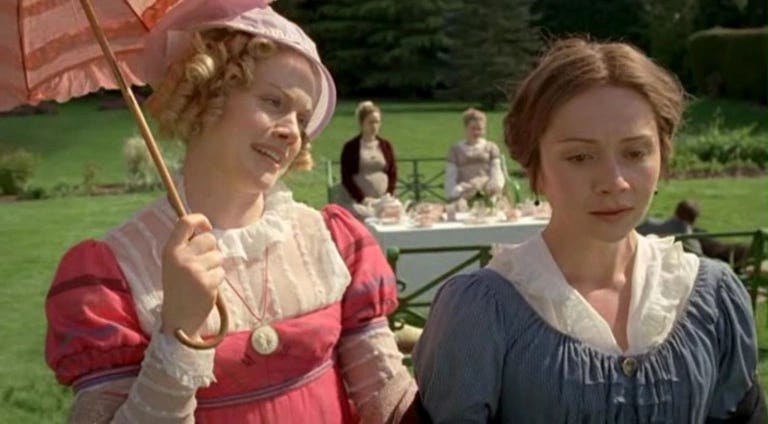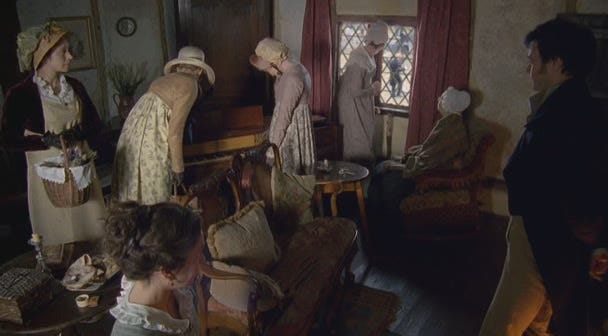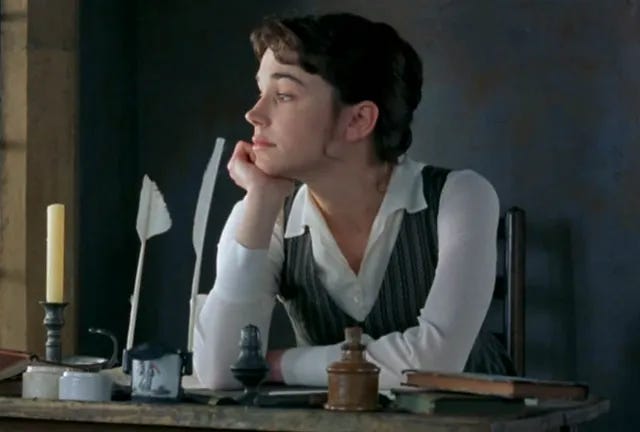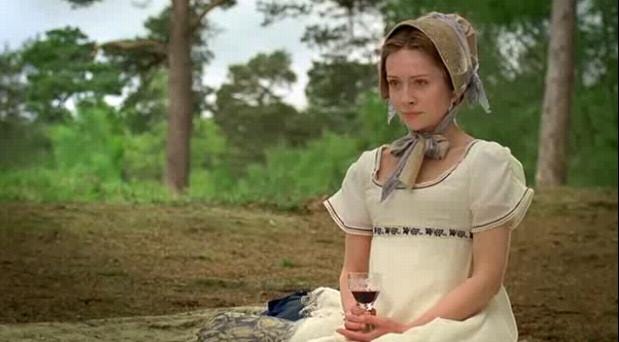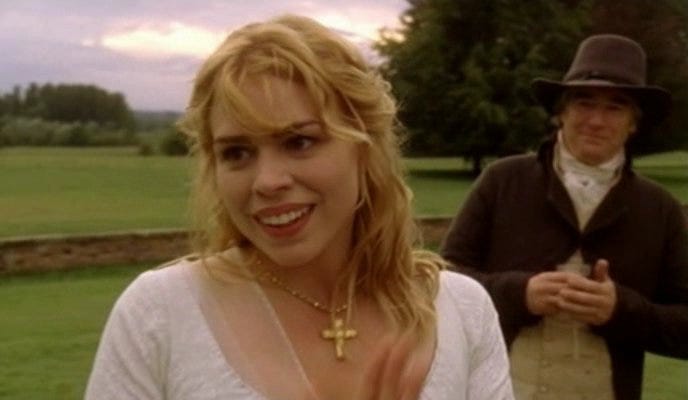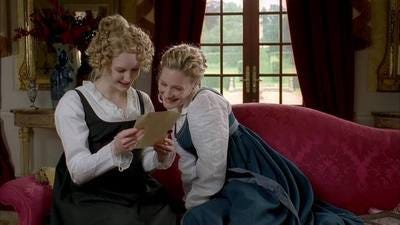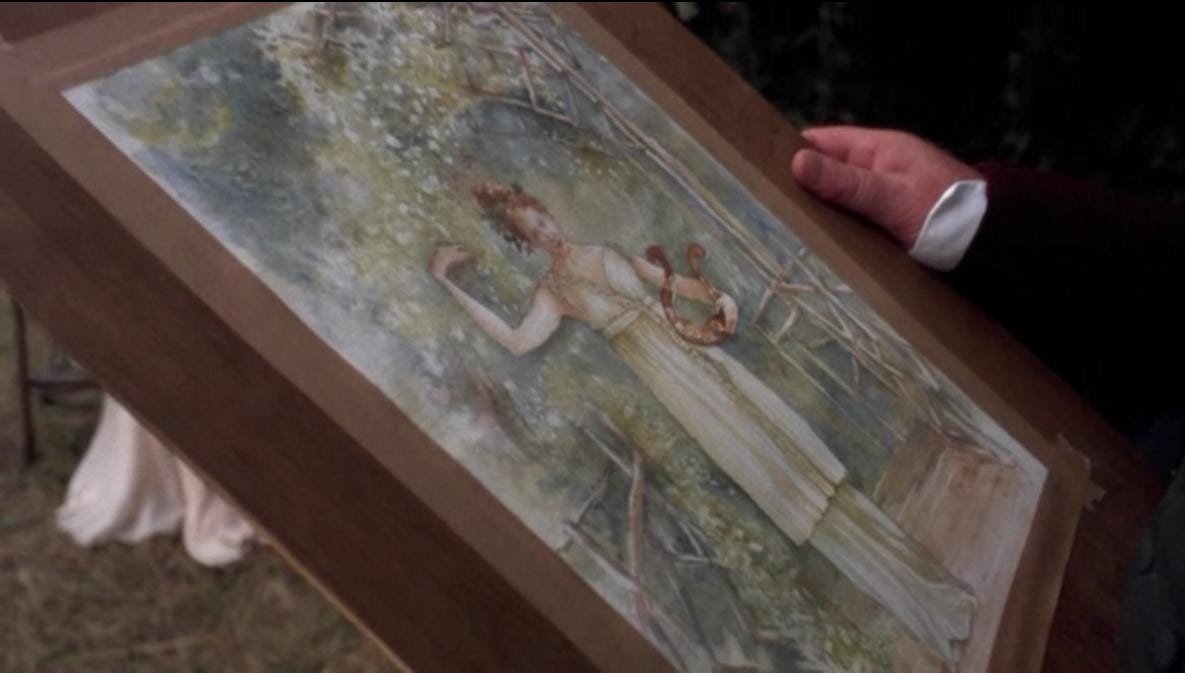Modern Austen's Dos & Don'ts for Holiday Gifting
Beware what you give & how you give it.
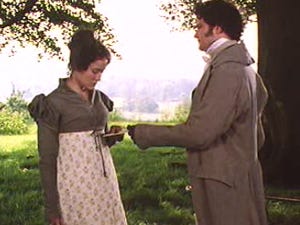
Whether you’re a gentleman’s daughter, the vicar’s wife, or a woman with little to no knowledge of her parentage, the holiday gift-giving season can be a joyful…& a stressful one.
What makes an appropriate gift? When & how should you give it? These are all the right questions to ask to ensure your holiday gifting is aligned with your status & station.
Jane Austen was all too aware that gift-giving is a sign of power, which is why she uses gifts within her novels to convey the workings of the complicated relationships between those who have much & those who don’t. No gift comes without some obligation from the giver & receiver.
In Austen’s time, women—particularly genteel women & women connected with the church—would have been expected to uphold a “gifting economy” that was meant to be separate from the male sphere of commerce.
This was an economy based on charity, on gifting items like food to the disadvantaged members of a community the way Emma does to Miss & Mrs. Bates, securing their status as neighbors in the community of Highbury. Austen herself, as the daughter of a cleric of the Church of England, would have been responsible for paying calls & delivering “gifts” to the less fortunate.
But what Austen observes, most shrewdly in Emma, is how this gifting economy only adopts the structures of power that exist in the traditional marketplace—Emma is always at the top, Miss Bates always at the bottom.
The world of Emma and, to a certain extent, the worlds of Mansfield Park, Sense & Sensibility, and Pride & Prejudice, are filled with characters whose gifts are self-interested. They give gifts to secure their status, to exert their power & control over someone with less power. Rarely is a gift given out of good will, despite what Miss Bates thinks of Emma’s offering of pork & apples from Hartfield.
Austen is making the point that the moral economy is never quite what it seems. But let’s not be negative—it’s the holidays, after all! And Jane wasn’t all cynical about gift-giving. She had definite ideas about what a gift ought to be & how our hearts must be in the act of giving it.
Want to ensure you’re giving gifts for the right reasons this holiday season? Here are some gifting dos & don’ts to help you out.
Don’t
Force your generosity upon someone who doesn’t want it
Mrs. Elton is worth £10,000, & she constantly tries to lord her wealth & status over Jane Fairfax. She takes advantage of Jane’s reserved nature & precarious situation (Miss Fairfax’s “failure” in the marriage market means she will need to find a governess position) by trying to make life decisions for her.
Jane’s rejections fall on deaf ears—Mrs. Elton can’t hear them over her self-importance. It’s clear that she’s desperate for a Harriet Smith she can exert control over.
Send your gift anonymously, risking the reputation of the receiver
Frank Churchill delights in the secrecy of his engagement to Miss Fairfax & seems to desire their arrangement be found out. He certainly doesn’t mind causing a stir in Highbury, gifting Jane a pianoforte that can barely fit in Miss Bates’s tiny cottage.
The gossip mill of Highbury speculates who would secretly send Jane such a generous gift & what their intentions might be. Mr Knightley who seems very fond of Jane? Colonel Campbell who thinks of Miss Fairfax as his own daughter? Mr. Dixon who saved her life in Weymouth?
Only Jane knows who sent the piano, & she must endure the many rumors about her secret admirer’s identity.
Re-gift stuff you don’t want
There’s no better way to show someone they’re unimportant! While the Bertrams offered the impoverished Fanny Price a place in their estate, the family never goes out of their way to make her feel comfortable.
Fanny’s cousins always impress upon her how inferior she is, even gifting her items they don’t care about that she keeps on her desk.
A tip for your holiday gifting: Always think about what your gift says to the recipient.
Expect praise or gratitude for your kindness
Emma visits the poor & brings food to Miss Bates because it’s what’s expected of her, & she receives enough praise for fulfilling her duty to make her feel good about herself. Even Mr. Knightley’s benevolence, as the proprietor of the estate to which all of Highbury belongs, is meant to preserve a paternalistic English way of life.
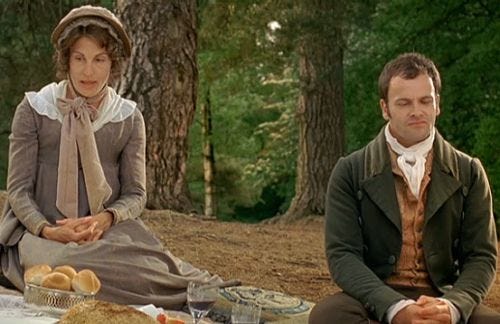
Lady Catherine attends to every need of the Collinses, expecting gratitude in return. And Fanny’s cousins give her their unwanted trinkets because she’ll have no choice but to accept them.
The act of gifting surely should be about the recipient & their happiness, not the other way around. Think less of your status & the gratitude you believe it deserves.
Do
Send your best arrowroot when someone’s ill
Of course Emma doesn’t just send the arrowroot to the Bates’s because she’s heard that Jane is ill. She hopes to make amends with Miss Fairfax after the cruel incident with Miss Bates on Box Hill.
While it’s better to have not committed an offense that requires a gift of apology, Emma is truly seeking Jane’s friendship. An admirable reason for gift-giving, I suppose.
Consider what someone really needs
In Mansfield Park, Fanny uses a ribbon to wear a cross her brother William gives her as a necklace. William was too poor to afford a chain for the cross, but Fanny still wanted to wear it even though the ribbon diminishes its appearance.
Fanny receives a chain from her cousin Edmund (the man she loves) to replace the ribbon, which she appreciates more than the necklace Mary Crawford (acting as an agent for her brother Henry) gives her. Fanny doesn’t want a new necklace—she wants to wear the cross her brother gave her. Edmund is attentive to this fact.
This just goes to show that people will appreciate your gifts if you think about what they really need. It also helps if the gift receiver is in love with the gift giver.
Be transparent about your gift’s intentions
Perhaps Mr. Elton cannot be blamed for Harriet Smith believing him to be in love with her (that’s all Emma’s doing), but he could have made clear that the romantic riddle he delivered to Highbury (to which the answer is “courtship”) was meant for Emma & Emma alone.
Rather than make his feelings known to Miss Woodhouse (feelings that are financially-driven), he drops hints & veils them in poetry. This makes it easy for Emma to convince herself & Harriet that Mr. Elton is in love with Miss Smith.
If the whole point of your gift is to make your true feelings for someone known, be honest about your intentions upfront. It will save so much time & heartache!
Reconsider that portrait & lock of hair
Much like the digital photos we take today, portraits could be used to manipulate & idealize the truth. We see this in Emma’s depiction of Harriet Smith on Canvas, where she essentially tries to recreate her friend in her image: A duplication of herself.
If you’re talented giving a portrait as a gift is all well & good, but I see no reason to subject a friend to hours of posing. Just snap a picture instead.
As for the lock of hair, not only is it ick, but it’s also a symbol of intimacy & attachment. And poor Marianne Dashwood learns that it’s not to be given lightly.
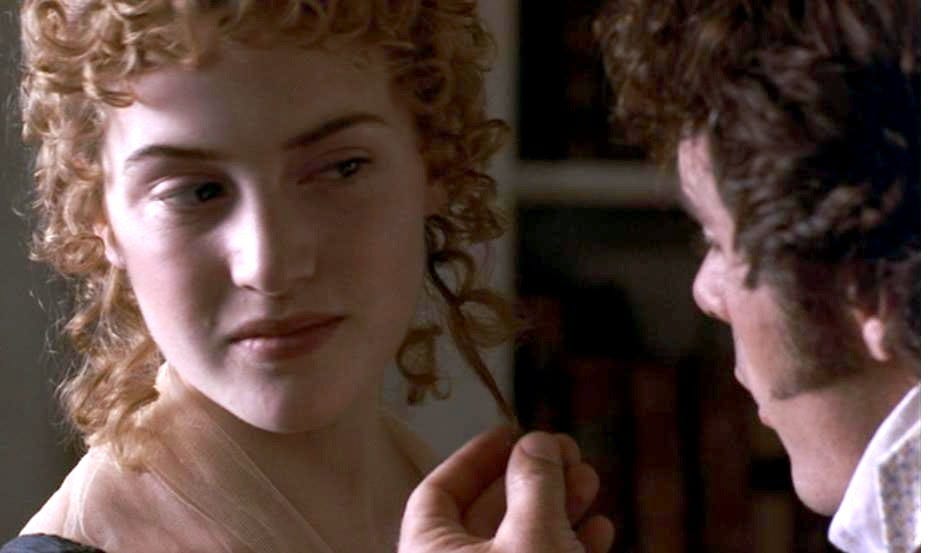
She allows Mr. Willoughby to cut a lock of her hair, assuming that a marriage proposal would follow. But Willoughby returns Marianne’s hair after he abandons her.
While the lock of hair cost nothing to give, it resulted in a painful symbolic rejection. Just stay away from giving your hair as a gift.
Say ‘I love you’ with money
It is, perhaps, Mr. Darcy who gives the greatest gift to Elizabeth Bennet when he tracks down her sister Lydia & Mr. Wickham following their elopement to pay for their wedding. Darcy also covers Wickham’s other debts & expenses, totaling around £3,500.

It’s a significant sum that confirms Darcy’s love for Lizzie. And it helps Lizzie come to see that she does, in fact, love Darcy. Showing love through money can be problematic. After all, it’s a lot to pay for Lizzie’s hand, & in any other Austen novel it would represent Darcy’s power over her.
But this is Pride & Prejudice, and Austen has done a lot of work throughout the novel to show us that Darcy & Lizzie are equals.
Still, Darcy’s fortune saves the day. Who says money can’t buy love?
Go beyond your social duties & gift from the heart
What Austen wants us to understand about gift-giving is what Emma Woodhouse learns at the end of her story: The act of gifting must be an expression of what’s in your heart. It’s not a social duty, & it’s not about what others will think of you if you do or don’t do it. Our gift-giving must come from a heartfelt, voluntary, & true concern for others.




